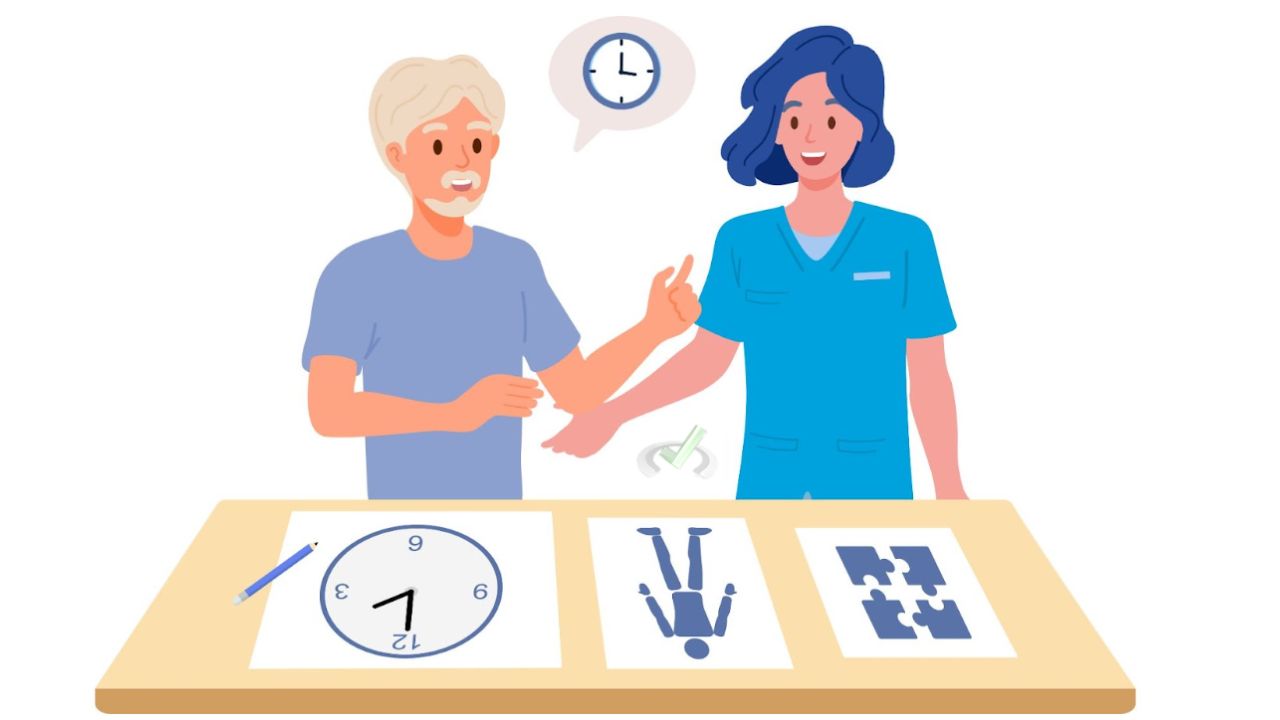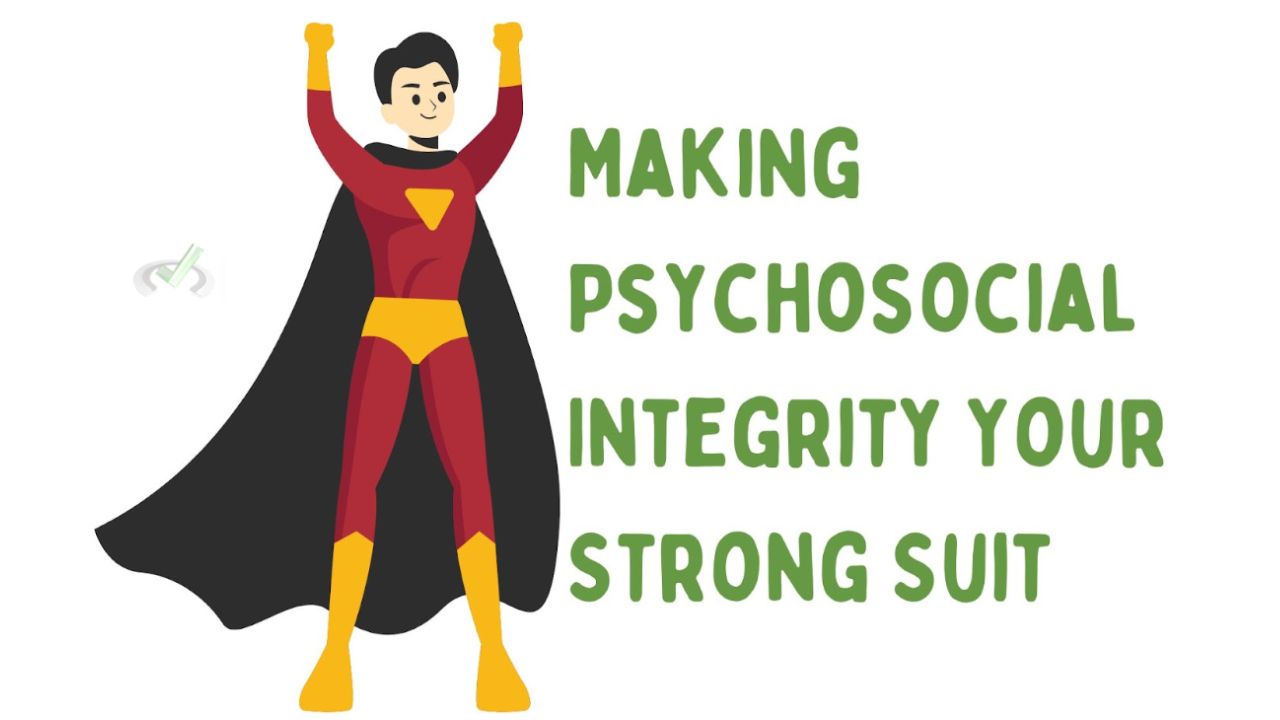You’re a nurse and a patient enters their voice shaking and their eyes darting with concern. A prescription and a fast temperature check are not enough. They require assurance. They require a person who can soothe their anxiety and give them a sense of security. This is the exact topic of psychosocial integrity on the NCLEX-RN. It’s not just a term—it’s the core of what makes nursing so human.
The National Council of State Boards of Nursing emphasizes that understanding psychosocial integrity helps nurses create an environment where patients feel secure and respected. This section of the exam doesn’t just test your knowledge; it checks your ability to offer care that heals the whole person.
Let’s break down what you need to know to master this part of your NCLEX-RN prep.
What Is Psychosocial Integrity in NCLEX-RN?
Psychosocial integrity is about addressing the mental, emotional, and social sides of patient care. It’s not just about identifying symptoms but understanding the reasons behind them. It’s noticing when a patient’s fidgeting hands or long silences mean more than boredom.
- What Psychosocial Integrity Covers:
- Mental health conditions and symptoms like anxiety or depression
- How patients handle stress
- Skills in effective, therapeutic communication
- Grief and loss support
- Respect for cultural and personal differences
- Why It Matters: Patients treated with an eye toward their emotional and mental needs show better results. Care becomes less transactional and more supportive. That’s what makes a difference not just in passing an exam but in real-world nursing.
Why the NCLEX-RN Exam Emphasizes Psychosocial Integrity
The NCLEX-RN doesn’t just throw random questions your way. Each section, including psychosocial integrity, measures whether you’re ready to be a safe, capable nurse. When you get questions about psychosocial integrity, you’re being asked if you can:
- Spot when a patient is anxious or distressed, even without being told
- Use communication skills that make patients feel understood
- Respond calmly to a range of emotional behaviors
Key Areas to Study for Psychosocial Integrity in NCLEX-RN
One big chunk of psychosocial integrity covers mental health. No, you don’t need to be a psychiatric nurse, but you do need to recognize when something isn’t right and know what to do next.
Common Disorders You Should Know
- Depression: It doesn’t always look like tears and sadness. A patient might come in with constant tiredness or changes in appetite. As a nurse, noticing these signs is step one. Talking to them in a way that opens up conversation is step two.
- Anxiety Disorders: Watch for restless hands, fast breathing, or rapid speech. Sometimes, anxiety isn’t spoken but shown in how patients act. You can offer them steps like guided breathing or just reassure them with steady, calm speech.
- Schizophrenia: Hallucinations or delusions are the more recognized symptoms, but it’s also about isolation or a sense of being detached. Keeping a safe, structured environment is key. Never argue with what they say they see or hear—redirect instead.
- Bipolar Disorder: This swings between mania (fast-talking, high energy) and depression (low energy, withdrawn). Knowing how to interact in each phase, whether it’s gently guiding them during a high or supporting them through a low, matters.
Therapeutic Communication: The Secret Weapon
Good communication isn’t just talking; it’s connecting. When you see questions about psychosocial integrity in NCLEX-RN, many will center on how you handle conversations that need more than a checklist of clinical answers.
- Empathy Always Works: Swap “I know how you feel” for “That sounds really difficult.” This small change shows that you’re listening without pretending to understand everything.
- Listening Goes Beyond Nodding: Keep eye contact (without staring like a statue), lean in a bit, and respond in ways that show you care. Patients notice when they’re just a task versus when they’re heard.
- Body Language Matters: A tense posture or folded arms can send the wrong signal. Keep your stance open, shoulders relaxed. Your non-verbal cues tell patients a lot.
Techniques That Work
- Open-Ended Questions: These draw patients out. Instead of asking, “Are you in pain?” try, “What can I do to make you more comfortable?”
- Rephrasing and Reflecting: Repeat back what a patient says but in your own words. If a patient says, “I can’t keep going like this,” respond with, “You feel overwhelmed by what’s happening.”
- Comfortable Silence: Let moments of quiet happen. These allow patients to gather thoughts and share more.
Handling Grief, Loss, and Coping Mechanisms
Grief has many faces, and no two patients show it the same way. It can be seen in a sudden diagnosis, the end of a long illness, or losing a loved one. Nurses who understand grief help patients feel supported without trying to fix what can’t be fixed.
- Stages of Grief (Elisabeth Kübler-Ross):
- Denial: “This isn’t real.” The patient shuts down or brushes off the reality. Your job isn’t to push them to face it, but to be there, steady and patient.
- Anger: Patients might lash out, snap, or say hurtful things. Don’t react defensively. Stay calm and hold the space for them.
- Bargaining: “If only I could do this…” comes out in patients trying to find some control. Acknowledge their feelings without feeding into false hope.
- Depression: This can look like silence, tears, or an empty stare. Sit quietly. Be there without words if needed.
- Acceptance: This doesn’t mean the patient feels okay, but they start to move forward. Support looks like continuing care, offering small kindnesses.
Coping Strategies Nurses Should Encourage
- Suggest writing in a journal to sort out thoughts
- Gentle physical activity, like a short walk, if they can
- Breathing exercises that calm racing thoughts
- Isolation that shuts out everyone, including loved ones
- Signs of alcohol or substance use
- Comments that hint at hopelessness or giving up
Cultural Competence: A Key Part of Psychosocial Integrity
Patients don’t come as blank slates. They bring culture, beliefs, and personal stories. This affects how they understand illness, respond to treatment, and connect with care. Knowing how to work within these contexts isn’t extra—it’s essential. The NCLEX-RN checks this because it’s part of psychosocial integrity.
Tips for Integrating Cultural Competence in Care
- Ask Respectfully: Instead of assuming, ask questions like, “Is there anything important about your care that I should know to help you feel more comfortable?”
- Stay Open: Reactions of surprise or judgment close doors. Keep a neutral expression and listen.
- Learn Key Basics: Some cultures value privacy over speaking up, while others may want family involved in decision-making. Know these general pointers but don’t stereotype. Everyone is different.
Stress and Adaptation Models
Theories can make things click. The Adaptation Model by Sister Callista Roy explains how people handle stress and adapt to change.
- Adaptation Model Overview:
- People adapt to stress through four areas: physical response, how they see themselves, their role in life, and their relationships.
- Nurses use this model to decide the kind of care a patient needs. For instance, is their stress mostly affecting their physical health, or is it shaking their self-image?
Real-Life Applications in NCLEX-RN Scenarios
Imagine a patient who suddenly becomes withdrawn after learning they need surgery. Using the Adaptation Model, you would consider more than just their body’s response. You’d think about their identity, their family role, and how that surgery impacts those parts of their life.
- Example: If a patient becomes short-tempered when discussing treatment, think past the obvious. Are they scared of not being able to work? Do they feel they’re losing control? Address those concerns with empathy and resources.
Final Tips for NCLEX-RN Success on Psychosocial Integrity
Mastering psychosocial integrity requires more than just memorizing facts; it’s about developing empathy and strong communication skills. These final tips focus on practical strategies to help you confidently handle this critical part of the NCLEX-RN exam.
Strategies That Help You Master Psychosocial Integrity
- Practice: Case Scenarios: Go over case studies that challenge you to respond as if you were there. Ask yourself, “What would I say? What would I do?”
- Talk It Out: Find a study buddy and run through sample questions. Explain your thinking out loud. This helps you pick up on any gaps in how you approach psychosocial issues.
- Stay Current: Check reliable sources for updates on patient interaction and mental health practices. Knowing current best practices helps you in the exam and in real life.
Why This Part of the Exam Stands Out
Psychosocial integrity in NCLEX-RN tests your ability to go beyond basic care and bring compassion into every interaction. These questions look at how you handle patients when they’re at their most vulnerable. This isn’t fluff. It’s what makes nursing an art as much as a science.
Conclusion: Making Psychosocial Integrity Your Strong Suit
Being a nurse takes skill, yes, but the ability to handle psychosocial situations makes a nurse stand out. This part of psychosocial integrity in NCLEX-RN shows that you understand the human side of healthcare.
From guiding patients through grief to respecting cultural differences, mastering this makes you a stronger, more compassionate nurse. Patients remember the nurse who saw them as a person not just as a patient with a chart. Its not just about preparing for tests its about showing up and having a genuine influence every day.




